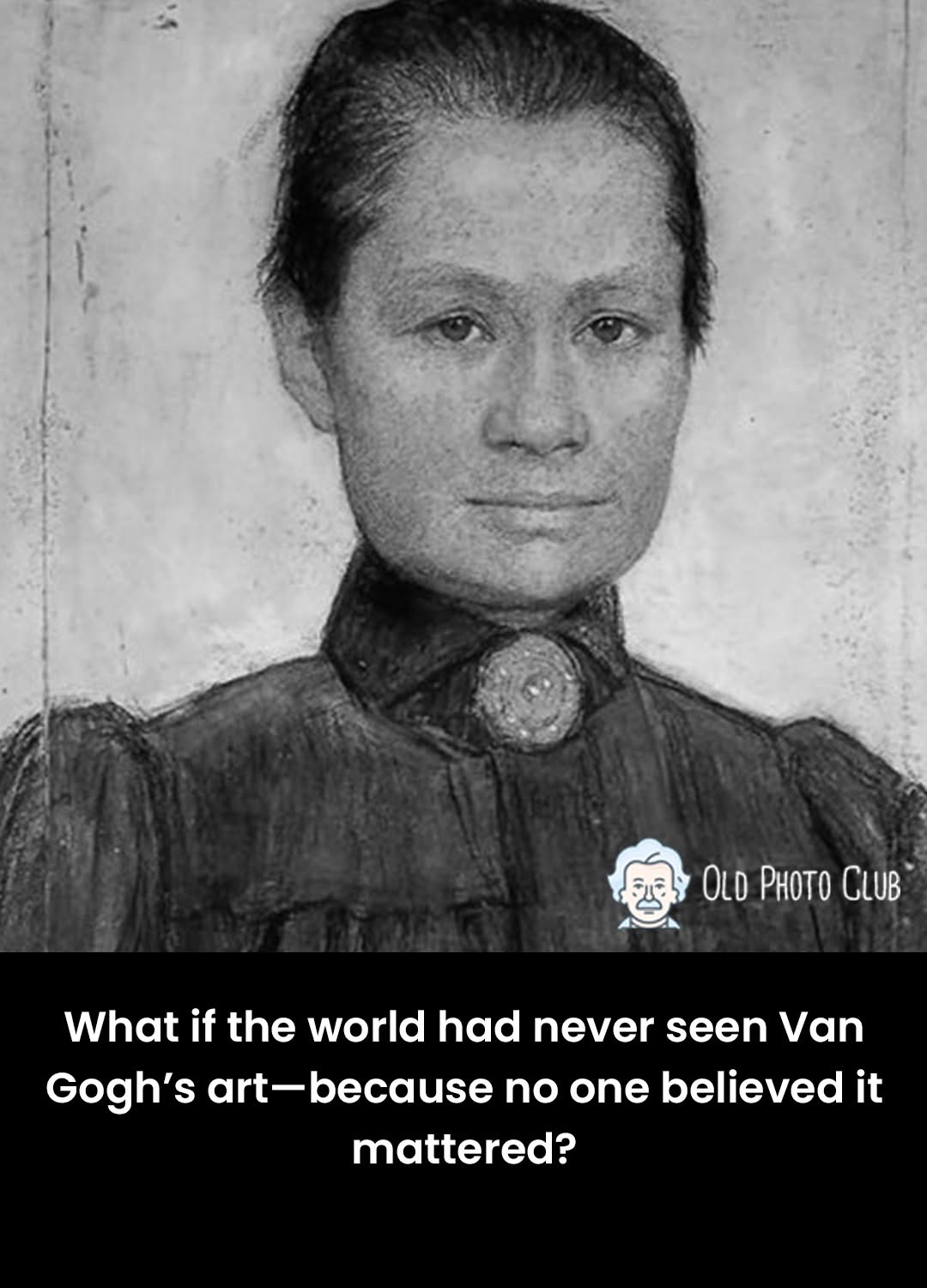Mildly interesting
-


How did Revolutionary War artillerymen know how to fire a cannon? We recently acquired for our collections an example of one of the tools they used: a pair of gunner’s calipers. Engraved with a ruler and specifications on different cannons and shot, calipers helped artillerymen measure the bore of a cannon and diameter of cannonballs, determine the appropriate size shot and amount of gunpowder, and even estimate a gun’s range—for use on both land and sea. This brass example was made in 1776 by Addison Smith of London, England.
@Mik That is quite cool. Kind of like a slide rule or abacus for cannon shooting.
-

When Johanna “Jo” van Gogh married Theo van Gogh, she couldn’t have imagined she’d change art history. Within two years, both her husband and his brother Vincent were gone—one to illness, the other to despair.
Left a widow at 28 with an infant son and hundreds of unsold paintings by a little-known artist, Jo could’ve walked away. Vincent had sold almost nothing during his lifetime. Critics had dismissed him. To most, the paintings were worthless.
But Jo saw more than just canvas and paint—she saw Vincent’s soul in every brushstroke. She read his letters, filled with hope, suffering, and passion, and knew his story had to be told.
She moved back to the Netherlands, ran a boarding house to survive, and began quietly organizing exhibitions. More importantly, she shared the letters between Vincent and Theo—revealing a mind full of brilliance, not madness. Slowly, the world began to listen.
In 1905, Jo curated the first major Van Gogh retrospective in Amsterdam. It changed everything. Critics reevaluated him. Museums began acquiring his work. His name spread far beyond Europe.
Today, Vincent van Gogh is one of the most celebrated artists in history. But it was Jo who made that possible. Her quiet resolve turned obscurity into immortality. Without her, the world may have never seen Starry Night or Sunflowers. Her story reminds us: legacies are often built not just by those who create—but by those who believe.
#WomenInHistory #ArtThatEndures
~Old Photo Club -

When Johanna “Jo” van Gogh married Theo van Gogh, she couldn’t have imagined she’d change art history. Within two years, both her husband and his brother Vincent were gone—one to illness, the other to despair.
Left a widow at 28 with an infant son and hundreds of unsold paintings by a little-known artist, Jo could’ve walked away. Vincent had sold almost nothing during his lifetime. Critics had dismissed him. To most, the paintings were worthless.
But Jo saw more than just canvas and paint—she saw Vincent’s soul in every brushstroke. She read his letters, filled with hope, suffering, and passion, and knew his story had to be told.
She moved back to the Netherlands, ran a boarding house to survive, and began quietly organizing exhibitions. More importantly, she shared the letters between Vincent and Theo—revealing a mind full of brilliance, not madness. Slowly, the world began to listen.
In 1905, Jo curated the first major Van Gogh retrospective in Amsterdam. It changed everything. Critics reevaluated him. Museums began acquiring his work. His name spread far beyond Europe.
Today, Vincent van Gogh is one of the most celebrated artists in history. But it was Jo who made that possible. Her quiet resolve turned obscurity into immortality. Without her, the world may have never seen Starry Night or Sunflowers. Her story reminds us: legacies are often built not just by those who create—but by those who believe.
#WomenInHistory #ArtThatEndures
~Old Photo Club@Mik said in Mildly interesting:

I doubt there would be a noticeable difference…
While the story is great, and art is to be celebrated, and some art truly was inspirational and aspirational, I don’t necessarily find Van Gough to be among those pieces. It can certainly be personal and affect people on a small and individual scale but on the macro? I doubt it.
-
Yes, I am sure that Canada will be a big decrease.
However, it would have been nice if the graph above was on teh same scale on both sides. For example, the countries on the bottom half, it looks like the tourists decreased as the line goes down, but they actually increased.
-

Most people stroll through Central Park without ever realizing they’re walking past the oldest monument in New York City—and one of the oldest man-made objects in all of America.
Rising 69 feet into the sky and weighing over 200 tons, the Obelisk—often called “Cleopatra’s Needle”—was carved in Egypt more than 3,500 years ago. It was created to honor Pharaoh Thutmose III, long before Cleopatra was even born, from a single block of red granite quarried in Aswan and originally erected in the city of Heliopolis.
After being toppled and buried during the Persian conquest in 525 B.C., it was rediscovered centuries later by the Romans, who moved it to Alexandria and placed it near a temple built by Cleopatra. That’s when it earned its famous nickname—even though she had nothing to do with its creation.
Fast forward to 1879: Egypt gifted the obelisk to the United States as a gesture of goodwill. But how do you move a 200-ton granite column across the ocean in the 19th century?
With brilliance and sheer determination.
It was carefully lowered, loaded onto the wooden cargo ship Dessoug, and shipped across the Atlantic. Upon arrival, it took 19 days to transport it through Manhattan—using a custom-built carriage pulled by horses and winches.
Finally, on January 22, 1881, before a crowd of 10,000 spectators, the Obelisk rose again—this time in Central Park, where it still stands tall.
So the next time you’re in New York, stop for a moment beneath Cleopatra’s Needle. You won’t just be looking at a monument… you’ll be standing in the shadow of 3,500 years of human history.
#AncientInNYC #CleopatrasNeedle
~Weird Pictures and News -
In 1959, police were called to a segregated library in S. Carolina when a 9yr-old Black boy refused to leave. He later got a PhD in Physics from MIT, and died in 1986, one of the astronauts aboard the space shuttle Challenger. The library that refused to lend him books is now named after him.

-
@jon-nyc said in Mildly interesting:
Amazing.
The incredible amount of hours spent practicing those shots should be posted by an account called Dudes Posting Their L's
-
Think Cinderella was born in a European fairytale? Think again.
Long before glass slippers and fairy godmothers, there was Rhodopis — a beautiful young slave in ancient Egypt.
As the story goes, recorded by the Greek geographer Strabo in the 1st century BC, Rhodopis was bathing when a falcon — symbol of the god Horus — snatched one of her golden sandals and dropped it in the lap of the Pharaoh.
Struck by its beauty and the mystery behind it, he launched a kingdom-wide search to find its owner.
When he finally met Rhodopis, he was captivated by her grace and nobility… and made her his queen.Yes — this is considered the oldest known version of Cinderella.
It dates back to the Hellenistic period, blending Egyptian and Greek mythologies long before Disney gave it a glittering twist.Back then it was a falcon, not a fairy. A golden sandal, not glass. A Pharaoh, not a prince.
Amazing how some stories live on — only their shoes change.
-
Why did a slave girl have golden footwear?



